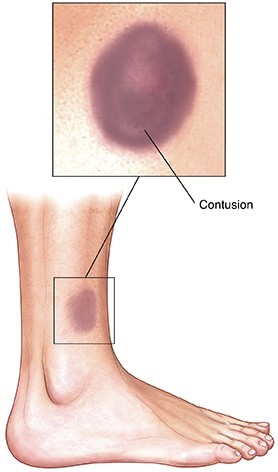A client, who is recovering from bariatric surgery, is returning from the post-anesthesia care unit. Which nursing assessment is of greatest concern in the immediate postoperative period for this client?
Impaired Mobility.
Impaired Gas Exchange.
Self-Care Deficit.
Diarrhea.
The Correct Answer is B
Impaired Gas Exchange. Impaired gas exchange is the greatest concern in the immediate postoperative period for a client recovering from bariatric surgery, as the client may have difficulty breathing due to anesthesia, pain medication, or obesity-related respiratory problems.
Option A, Impaired Mobility, is a concern but not the greatest concern in the immediate postoperative period.
Option C, Self-Care Deficit, may be an issue but is not the greatest concern in the immediate postoperative period.
Option D, Diarrhea, may occur after bariatric surgery but is not the greatest concern in the immediate postoperative period.
Nursing Test Bank
Naxlex Comprehensive Predictor Exams
Related Questions
Correct Answer is B
Explanation
Abandon biases that older adults are sexually inactive. Older adults are sexually active and at risk for sexually transmitted infections (STIs). The nurse should not make assumptions about the client's sexual activity based on age.
Option A, older clients who are sexually active have less risk for STIs than other age groups, is incorrect because older adults are at risk for STIs. Option C, older clients know the ways to prevent STIs, may not always be accurate.
Option D, older clients, because of their maturity, are rarely embarrassed to talk about it, is a generalization and may not be true for all older clients.
Correct Answer is C
Explanation
Contusion. The nurse would suspect a contusion as the client was hit by a baseball bat and has localized pain and swelling with ecchymosis (bruising).

Option A, Strain, is unlikely as a strain is a stretching or tearing of a muscle or tendon, and it is not usually caused by blunt force trauma.
Option B, Sprain, is unlikely as a sprain is a stretching or tearing of a ligament, and it is not usually caused by blunt force trauma.
Option D, Fracture, is unlikely as a fracture is a break in the bone and usually involves more severe pain and may be accompanied by deformity.
Whether you are a student looking to ace your exams or a practicing nurse seeking to enhance your expertise , our nursing education contents will empower you with the confidence and competence to make a difference in the lives of patients and become a respected leader in the healthcare field.
Visit Naxlex, invest in your future and unlock endless possibilities with our unparalleled nursing education contents today
Report Wrong Answer on the Current Question
Do you disagree with the answer? If yes, what is your expected answer? Explain.
Kindly be descriptive with the issue you are facing.
